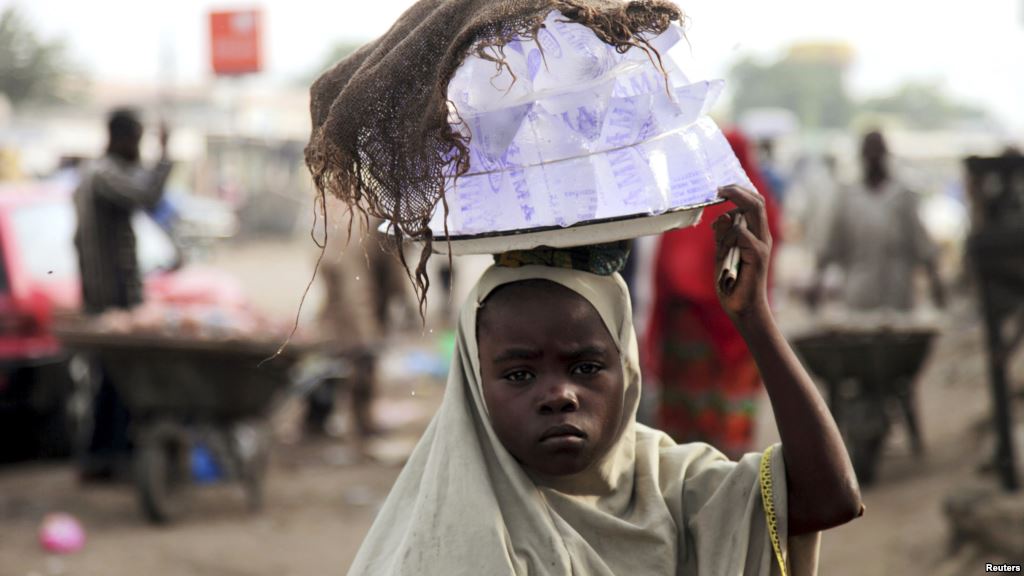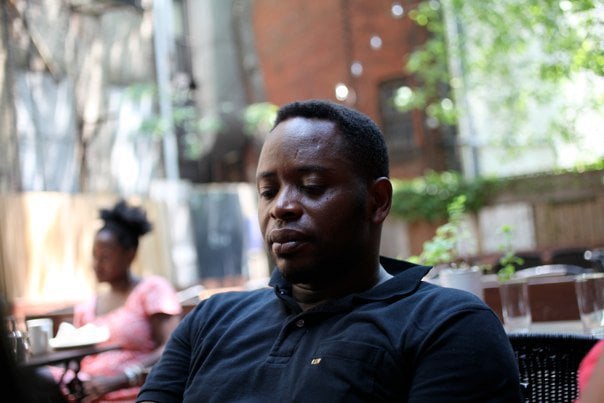BY ‘SOLA FAGORUSI
As we commemorate this year’s International Day of the Girl Child, it is difficult not to remember the night of 14th/15th April, 2014 in Chibok, a community in Borno State, North East Nigeria where 276 girls were kidnapped.
It was an easy task for the Boko Haram religious extremists that executed this sordid task as the girls were in their dormitories at the Government Secondary School. It was an unsafe space for learning and the abductors knew this.
There are fears that even as peace gradually returns to this axis of the country, some parents will need more to be convinced to allow their girl child(ren) go back to schools. Provision of safe spaces for education has therefore become non-negotiable. The incidences of kidnappings in schools in the country’s commercial capital also make this a critical need. Militants early this month kidnapped a vice principal and 4 students from the Lagos Model College, Igbonla, Epe.
Advertisement
Nigeria with a population of about 182 million comprises 17 million girls between ages 10 and 19. According to the United Nations Population Fund, UNFPA, 56.7% of these girls have primary education while 45.7% have secondary education. The United Nations has set aside October 11 of every year as the day to celebrate the girl child across the world. Everywhere, girls are vulnerable and prone to abuses such as rape, early child marriage, female genital mutilation and even unwanted pregnancies.
This year’s celebration tagged ‘Girls’ Progress equals Goals’ Progress: What Counts for Girls’ resonates properly in the context of the global goals called the Sustainable Development Goals. It is a bold way to make girls a priority in our drive to achieve the objectives of the SDGs by 2030.
In countries like Nigeria where the federal allocation to education never meets up to the UNESCO approved 26%, it is not surprising the gains of education especially for the girl child are not huge. The incentives to make education attractive are absent. The harmful culture in some rural communities and some parts of the country where girls are seldom valued also persists. It explains why 11.6% of the 17 million girls in Nigeria are according to the UNFPA married off by the age of 15 and 23% of girls age 15-19 experience teenage pregnancy. Given the complications associated with their pregnancies, these girls also contribute to 30% of maternal deaths in Nigeria that currently stands at about 567 per 100,000.
Advertisement
Education is the missing piece of this puzzle. It is the only means through which girls can aspire to their fullest potentials. Given our poor legislation and enforcement of laws as well, 28% of girls age 15 to 19 in Nigeria have had experiences of physical and sexual violence. Predictably, here have been few incidences of prosecution. The case of Ese Oruru still angers citizens with a conscience. At 13, she was abducted from Balyesa State in Nigeria by Yunusa Dahiru who raped, Islamised and married her in Kano without parental consent. It took a national outcry to partly make right this wrong. By the time she returned, she was pregnant.
What will count for girls as we come towards the end of the first year of the implementation of the SDGs is for government at all levels to see provision of 12 years of free, qualitative and safe education a priority. It means the first 6 years of primary education and 6 years of secondary education are covered. As a country, we continue to see how leadership that is usually learnt indirectly in schools continues to elude our girls and women given our socialisation process.
In primary and secondary school, the boys are always given leadership roles – they are the class captains. They are the ones chosen in most instances to oversee the affairs of the class when the teacher or form tutor is absent. These boys get into the university and it is not surprising that they aspire to lead the Students’ Union and then later in life they become governors or even presidents. It explains why out of 19 presidential aspirants in the Nigerian presidential election of 2015, only one was a woman. The girls have learnt through a faulty socialisation process that they are second or even a distant third to the boys.
The few who try to break the ceilings are loudly celebrated. Education is also about learning literacy and other soft skills. Even the United Nations as a group is not exonerated from this; since its operation in the 1900s till date, the body has had 9 Secretary-General and not one is a woman. That won’t even happen for the next 5 years as Antonio Guterres from Portugal will replace Ban-Ki Moon in January 2017.
Advertisement
Quality education is the best gift any girl-child can have. It is the tool with which she can pull herself up by the bootstrap. In 2015, statistics from UNICEF showed that 32% of 15-23-year-old girls lacked basic literacy skills, compared with 23% of boys the same age. The same report points clearly at the problem – 10.5 million children in Nigeria are out of school and 60% are girls. 40% of Nigerian children aged 6-11 do not attend any primary school with the Northern region recording the lowest school attendance rate in the country, particularly for girls. Quality education is becoming expensive as government is shirking in its responsibility and parents with the economic means are resorting to self-help through expensive private school education for their wards. The Child Rights Acts, which was designed to safeguard the interest of children, is more of a weak instrument of law given the faint implementation; at least it has been adopted in 24 states.
The solution lies first with parents, who are the primary care giver for their children to set aside culture and religion that pays little or no attention to the girl child. A man who is refusing a male doctor to attend to his wife on the grounds of religion and still goes ahead to deny his own daughter education is only making a mockery of himself. Pray where will the female doctors come from if his ilk continues to think education is not for girls. The civil society institutions also need to continue raising the bar of advocacy on gender equality and equity in education. The failure of the education sector to also attract the best minds makes quality education attainment tough. It is a defeated cause when teachers are paid paltry salaries and then owed for months and when teaching is seen as a last option when other job searches have failed.
What many have failed to understand is that beyond girls’ progress equaling goals’ progress, it is also about it equaling all’s progress. This is because ultimately these girls are sisters to us, our partners and our mothers. It should first be about their humanity before their sex. Their wellbeing affects the wellbeing of all. Happy International Day of the Girl Child.
Advertisement
Views expressed by contributors are strictly personal and not of TheCable.






